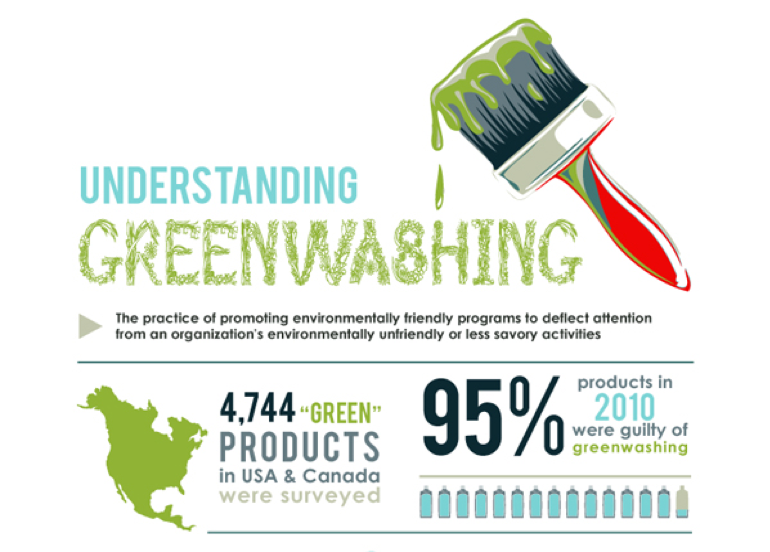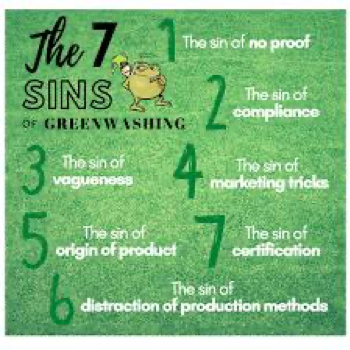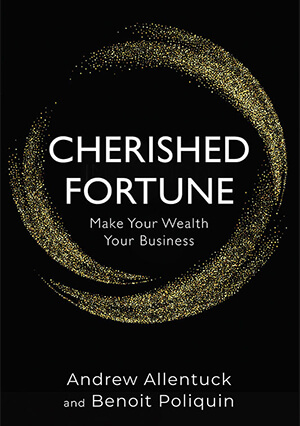As we continue our series to educate investors and consumers about the fast-moving field of ESG/SRI investing, it has become critical to expose and explain the concept of “greenwashing”.
The advertising industry historically operated within the bounds of honesty and integrity with the support of some well-intentioned corporations coupled with a strong regulatory framework designed to expose product deception and false claims.
With the constant barrage of negative messages about our planet dying and no future for our children, narratives have been crafted globally around “greening up”, “decarbonization” and “eco-friendly” product launches. Have the perpetrators been totally honest or have they conveniently applied a “green” veneer over a series of dubious products designed to make buyers feel good while increasing sales and profits for shareholders?
The term “greenwashing” actually finds its roots all the way back to 1986 when it was coined by famous environmentalist Jay Westerveld. Jay was staying in Fiji as an undergrad when he decided to slip into the Beachcomber Resort to steal some beach towels. A sign suggested guests return them after each use so they wouldn’t damage the environment. However, the resort was in the midst of a huge expansion and he doubted they really cared about the environment. Within a few years, the term found its way into the Oxford Dictionary (1990). It defined “greenwashing” as “disinformation disseminated by an organization so as to present an environmentally responsible public image.”

The above image illustrates just how rampant this problem can be, despite having tightened regulations in place. Since 2010, stricter standards have been enacted and consumer demand has forced changes; however, the practice continues given the powerful universal need to do “our part” in helping out.
Our addiction to social media and obsession with green-based messaging have helped to cloud the sector’s good intentions. We need to view these constant messages with a critical eye – on our televisions, online and in our neighbourhoods – and to educate ourselves on the renowned “Seven Sins of Greenwashing”:

By following these simple tips, we – the holders of the wallets and purses – can redirect our dollars towards the leaders of change. It’s very easy to put down a package from a cosmetics company that isn’t recyclable but claims to be “eco-friendly” and purchase one that is. Buy your gasoline for your car from an oil company that is redirecting a percentage of its revenues into renewables.
Now imagine the complexities involved as a conscientious global money manager seeking non-greenwashed corporations to construct best-in-class portfolios for investors. We face the same dilemma as do consumers as not all offerings are created equal. Just like filling your shopping cart, Caveat Emptor (let the buyer beware) applies to all investors going through the process of selecting an advisor to steward a properly engineered Environmentally/Social and Governance based portfolio.
In today’s landscape, there are a multitude of investment opportunities that look or sound like they are “eco”, “eco-friendly”, “green”, “bio”, “organic”, “clean”, or “sustainable” making it relatively easy to put together a green-themed portfolio. It is not that simple: We believe a great deal of due diligence and experience is required for the establishment of a sound, functional and evolving ESG-designed portfolio for the serious investor.
I have barely scratched the surface of this exciting and game-changing space – one that truly affects all investors. It is powerfully engaging and if you are serious about utilizing your capital to effect change, don’t hesitate to reach out and carry on the discussion. Together we can build the future.






